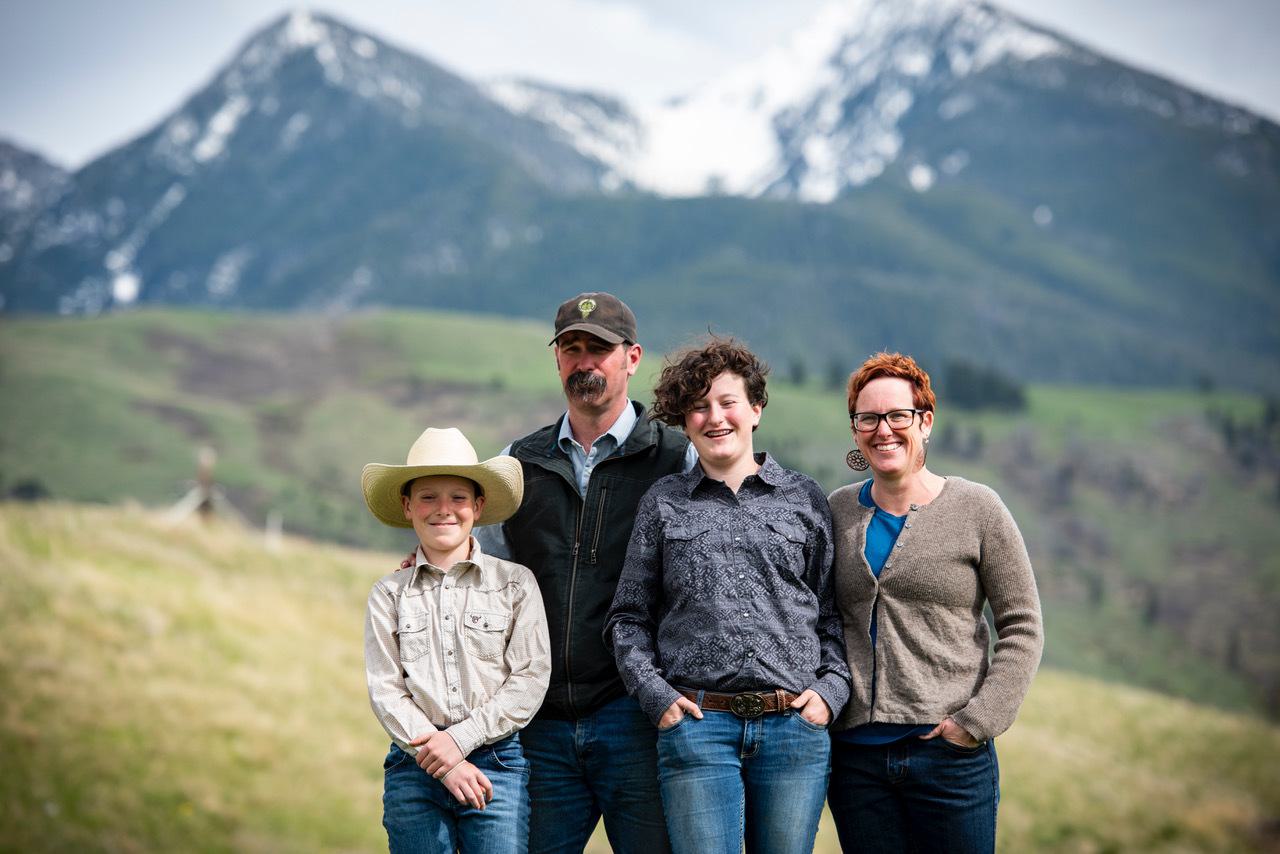Three Finalists Selected for Montana Leopold Conservation Award
June 23, 2021
Three finalists have been selected for the prestigious Montana Leopold Conservation Award®.
Given in honor of renowned conservationist Aldo Leopold, the award recognizes farmers, ranchers, foresters and other landowners who inspire others with their dedication to land, water and wildlife habitat management on private, working land.
This is the third year the $10,000 award has been presented in Montana.
The Leopold Conservation Award is presented to private landowners in 22 states with a variety of conservation, agricultural and forestry organizations. In Montana, Sand County Foundation and national sponsor, American Farmland Trust, present the award with the State of Montana, and the Montana Department of Natural Resources and Conservation’s Rangeland Resources Committee.
“From Sidney to Eureka, private landowners in Montana achieve both economic and conservation success through their dedicated stewardship of our land and water resources,” said Governor Greg Gianforte. “The Leopold Conservation Award is an opportunity for friends, neighbors, and resource managers to recognize the farmer, rancher, or forested landowner who inspires others to excel as caretakers of our working landscapes.”
The finalists are:
- Hidden Hollow Hideaway Cattle and Guest Ranch of Townsend in Broadwater County: The Flynn family’s weed control efforts coupled with a deferred rotational grazing system created better forage for livestock and quality wildlife habitat. The family, led by the late Kelly Flynn, used conservation practices to develop a park-like paradise for hunters and summer vacationers. They’ve showed visitors that you can log timber, raise livestock, and still experience a beautiful landscape.
- Pete and Meagan Lannan of Livingston in Park County: Regenerative agriculture practices used at Barney Creek Livestock are improving the soil and building the resiliency of rangeland. Intensive rotational grazing of their beef cattle is designed around being ecologically and economically profitable. Efforts such as fencing off riparian areas are improving water quality while providing quality habitat for wildlife including sandhill cranes, bees and mule deer.
- Peterson Angus Ranch of Drummond in Granite County: Randy and Sue Peterson’s cattle ranch is situated in the grassland foothills of the John Long Mountains. Their ranch management prioritizes stewardship of soils, native grassland, wetlands, and other high-quality wildlife habitat. The Petersons share their ranch with scientists, educators, hunters and the general public to advance education, ecology and conservation. They employ innovative grazing practices that balance livestock production with ecosystem protection.
Earlier this year, Montana landowners were encouraged to apply (or be nominated) for the award. Applications were reviewed by an independent panel of agricultural and conservation leaders.
The award recipient will be revealed at the Montana Range Tour on September 8. Last year’s recipient was C Lazy J Livestock, owned by Craig and Conni French of Malta in Phillips County.
“Recipients of this award are real life examples of conservation-minded agriculture,” said Kevin McAleese, Sand County Foundation President and Chief Executive Officer. “These hard-working families are essential to our environment, food system and rural economy.”
“As the national sponsor for Sand County Foundation’s Leopold Conservation Award, American Farmland Trust celebrates the hard work and dedication of the Montana award finalists,” said John Piotti, AFT President and Chief Executive Officer. “At AFT we believe that conservation in agriculture requires a focus on the land, the practices and the people and this award recognizes the integral role of all three.”
The Montana Leopold Conservation Award is made possible through the generous support of American Farmland Trust, Montana Department of Natural Resources and Conservation’s Rangeland Resources Committee, Sand County Foundation, Northwest Farm Credit Services, Sibanye-Stillwater, TC Energy, USDA Natural Resources Conservation Service, World Wildlife Fund, C Lazy J Livestock Inc., Grazing Lands Conservation Initiative, McDonald’s, Montana Farm Bureau Federation, Ranchers Stewardship Alliance, Society for Range Management-Northern Great Plains Section, and Soil and Water Conservation Society.
In his influential 1949 book, A Sand County Almanac, Leopold called for an ethical relationship between people and the land they own and manage, which he called “an evolutionary possibility and an ecological necessity.”
For more information on the award, visit www.leopoldconservationaward.org.
# # #
LEOPOLD CONSERVATION AWARD PROGRAM
The Leopold Conservation Award is a competitive award that recognizes landowner achievement in voluntary conservation. Sand County Foundation presents the award in California, Colorado, Kansas, Kentucky, Missouri, Montana, Nebraska, New Mexico, New York, North Dakota, Oklahoma, Pennsylvania, South Dakota, Texas, Utah, Wisconsin, and in New England (Connecticut, Maine, Massachusetts, New Hampshire, Rhode Island and Vermont). www.leopoldconservationaward.org
SAND COUNTY FOUNDATION
Sand County Foundation inspires and empowers a growing number of private landowners to ethically manage natural resources in their care, so future generations have clean and abundant water, healthy soil to support agriculture and forestry, plentiful habitat for wildlife and opportunities for outdoor recreation. www.sandcountyfoundation.org
AMERICAN FARMLAND TRUST
American Farmland Trust is the only national organization that takes a holistic approach to agriculture, focusing on the land itself, the agricultural practices used on that land, and the farmers and ranchers who do the work. AFT launched the conservation agriculture movement and continues to raise public awareness through its No Farms, No Food message. Since its founding in 1980, AFT has helped permanently protect over 6.5 million acres of agricultural lands, advanced environmentally sound farming practices on millions of additional acres, and supported thousands of farm families. www.farmland.org

Hidden Hollow Hideaway Cattle and Guest Ranch of Townsend in Broadwater County

Pete and Meagan Lannan of Livingston in Park County

Peterson Angus Ranch of Drummond in Granite County